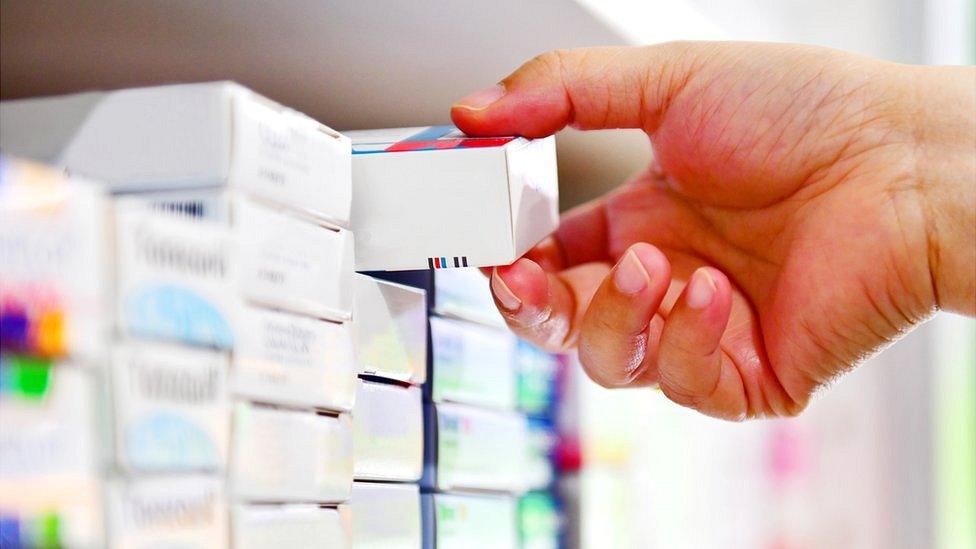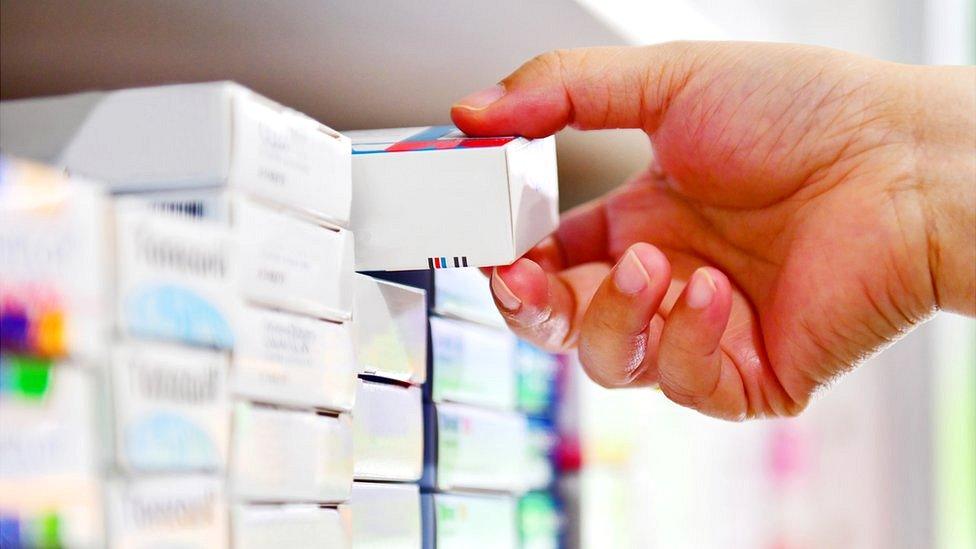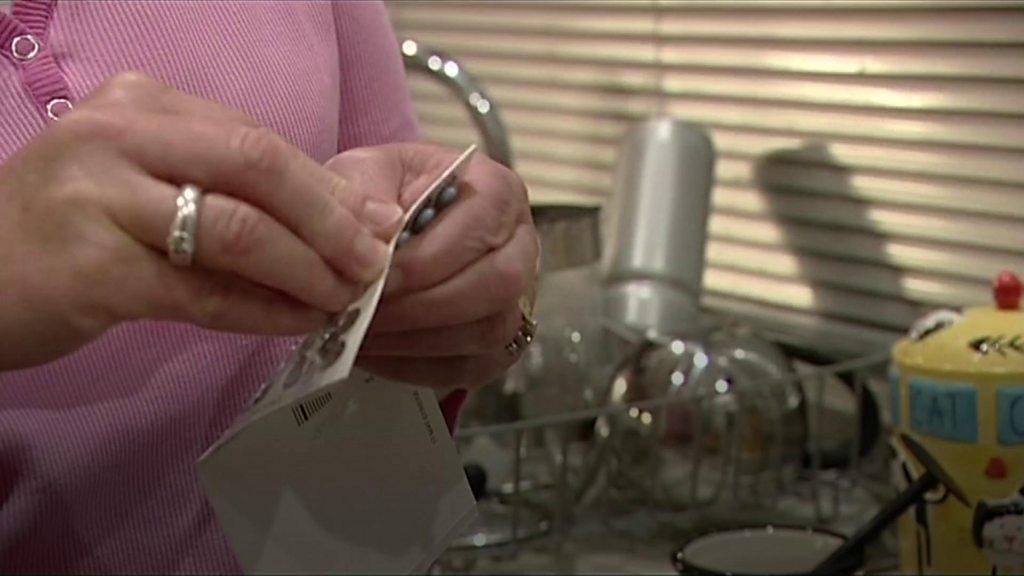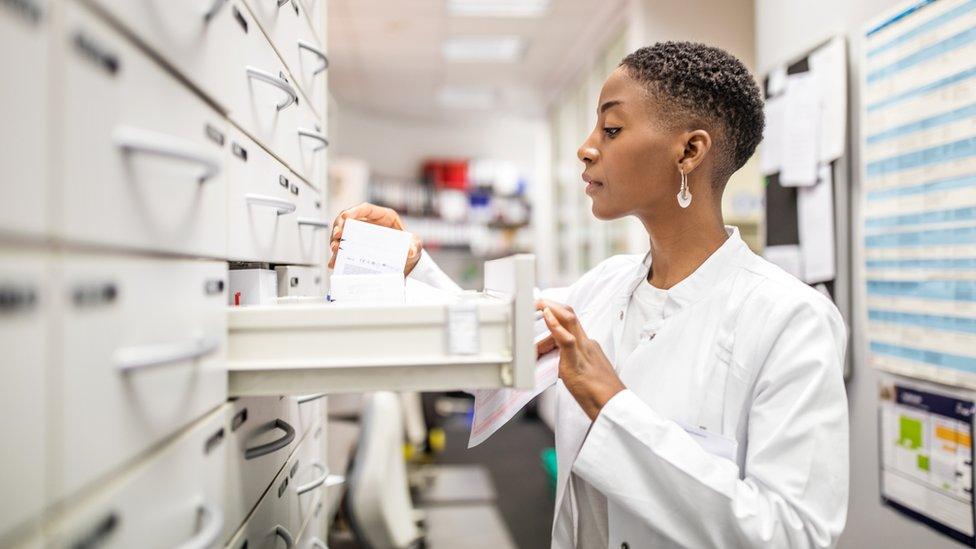HRT shortage: Warwickshire woman concerned over shortages
- Published

Victoria Palfrey said her most recent HRT delivery had failed to materialise
A woman who said she needs Hormone Replacement Therapy (HRT) to function has welcomed the appointment of a government tsar to deal with shortages.
Victoria Palfrey, from Fenny Compton, Warwickshire, said: "It's really frustrating that it has got to this point."
The Royal College of Pharmacists said there are national shortages of some HRT and called for laws to be relaxed.
Mrs Palfrey said the issue had been known about for nearly two years.
HRT is a treatment to relieve symptoms of the menopause, replacing hormones which drop to low levels, and the medication can be taken as tablets, skin patches, gels and vaginal creams, pessaries or rings.
In England, prescriptions have more than doubled since 2017.
Mrs Palfrey said HRT had been "completely life changing" and before she starting using the gel she had suffered a loss of confidence, brain-fog, fatigue and a lack of sleep.
"You don't really realise how bad it is until you start HRT and you become the person that you should be," she said.
She now uses the patches, but said shortages had meant going from three-month supplies to receiving her medication month-by-month, and her most recent supply had completely failed to appear.
Mrs Palfrey, a freelance events manager with three young children, said: "I definitely would not be able to function without it. It's just all-consuming."
She said people had been texting and asking where they could get supplies and she had given a spare bottle of gel to "a friend who was really, really struggling".
"There is no secret stash of it anywhere, even on private prescriptions," she added.

Demand for HRT prescriptions has doubled since 2017
Chair of the Women and Equality Committee Caroline Nokes recently said pharmacy supplies of oestrogen gel had run out in her Hampshire constituency and Health Secretary Sajid Javid has announced he will appoint an 'HRT tsar' to look at the problem.
Manufacturers are currently increasing supplies, including those of hormone gel product Oestrogel.
Mrs Palfrey said it was "a step in the right direction" and hoped to see a long-term solution, with pharmaceutical companies and the government "all moving in the same direction".
But she asked: "If insulin ran out, the government wouldn't let that happen, so why is it ok for this to happen to women?"

Follow BBC West Midlands on Facebook, external, Twitter, external and Instagram, external. Send your story ideas to: newsonline.westmidlands@bbc.co.uk, external
Related topics
- Published26 April 2022

- Published26 April 2022

- Published8 April 2022

- Published29 October 2021
